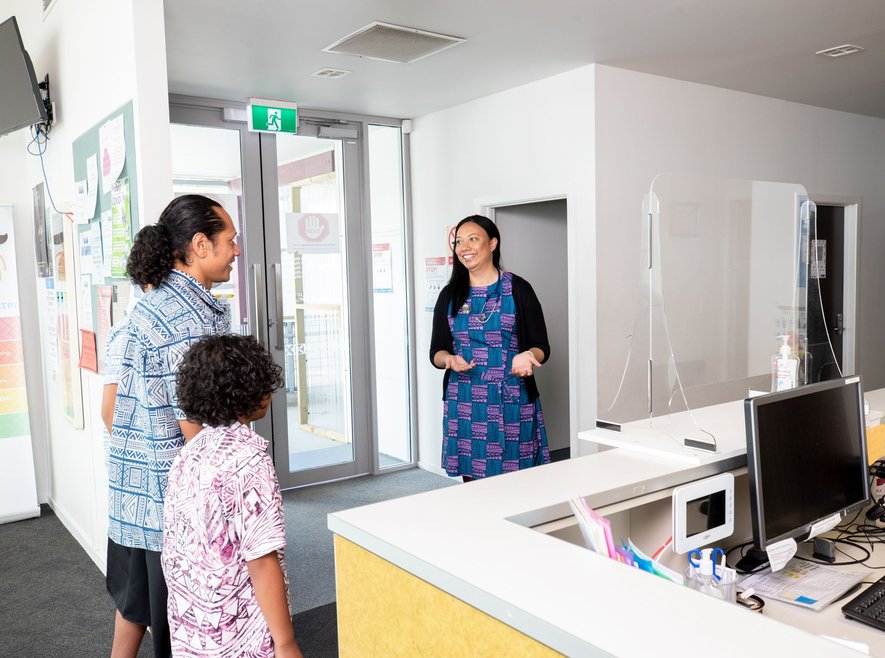The Foundation Standard
The Foundation Standard is the hallmark of quality for general practices across Aotearoa and qualifies practices for government funding. The Standard combines quality control with quality improvement to help practices identify and address gaps in their systems and processes.
The Foundation Standard is a 3 yearly programme and includes elements of diversity, equity, and cultural safety, aligning practices to New Zealand's Health Strategy of achieving health equity and improving health outcomes for all New Zealanders.
The first step in The Foundation Standard is the self-assessment, which is completed in Smartsheet. Practices can access the right tool through the practice administration portal.
Practices need to provide evidence that they have met the criteria of 15 quality assurance indicators, which are grouped into five areas:
The practice initially completes their self-assessment, which includes providing written comments for each of the 15 indicators. The practice team also uploads evidence such as photos, policies, survey results, and other documentation for each criterion, which sit within the indicators.
Once the practice is satisfied that they have met each criterion, they will mark these as ‘met’. All criteria must be marked as ‘met’ before the assessment visit can occur.
College-endorsed assessor visit
After practices have completed their self-assessment and believe they are ready for their assessment of The Foundation Standard they need to find an assessor to complete both an online assessment and an in-person site visit. The onsite visit of approximately 4 hours, enables the assessor to validate the evidence provided on Smartsheet and make observations of the physical site.

College endorsed assessors
Practices need to kōrero directly with their assessor to agree on fees and a schedule. All assessors set their own rates and manage their own work schedule. The College’s “Letter of Engagement’ sets out assessment expectations and the mutual agreements between the assessor and practice. The practice will also need to understand how the assessment day will run and make a date for the on-site visit.
Once the assessor has completed the assessment and can confirm that the practice has met all the indicators, they will recommend that the College award Foundation Standard certification. If an assessor is moderated, this may delay the certification process, especially if more evidence is required.
Guidance and resources
The College provides all practices with detailed guidance for every indicator in the Foundation Standard. The guidance is a living document and designed for use with the Standard so that practices understand what the requirements are and how to meet them.
The Smartsheet
Smartsheet is the software tool where practices write their self-assessment comments for each criterion and upload their documented evidence. Practices can access this tool through the practice administration portal.
Once the practice has marked all criteria as ‘met’, the assessment visit can occur. The assessor then adds their comments and judgments to the Smartsheet. The Smartsheet resource explains it’s many functions, how to communicate with others using the sheet and track progress.
Team members
Team members refers to all people employed at the practice. Those working alongside the team for periods of time such as students, registrars and those employed by PHOs (Primary Health Organisations) are also considered part of the team. This group should receive an induction, be included in improvement initiatives, medical emergency drills, evacuation drills and the reporting of incidents and accidents but are exempt from the full Foundation Standard training requirements.
Those not considered team members include people who do not work regularly at the practice, for example, short term locums covering clinicians on leave. This group are not required to complete all Foundation Standard training requirements. However, practices should ensure that short term clinical locums have current APCs (Annual Practising Certificates), CPR (Cardiopulmonary resuscitation) certificates, safety checks as well any other training the practice may determine, such as Ti Tiriti and privacy training.
Traditional practice team members roles are evolving along with models of care. A 2023 College survey shows that in addition to traditional roles, practices regularly have on their teams:
- Clinical pharmacists
- Primary health care assistant
- Paramedics
- Health coaches and health improvement practitioners
- Nurse practitioners, nurse prescribers and enrolled nurses
Practices should review the training requirements of the Standard in the context of the team members role and consider any adaptations to policies or processes or additional training/CPD which may be required to assure the competence and safety for each role.